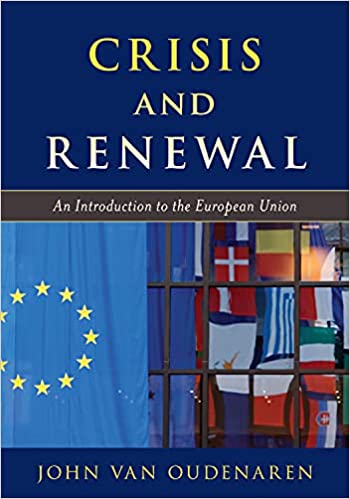The European Union and its Future
John Van Oudenaren has provided a very helpful look at the evolution of the European Union and the challenges facing its future. An aspect of why I think it is so helpful is that it provides a well written history of how the EU has gotten to where it is, and thereby provides for the younger generation, notably of Europeans, a sense of why a European Union was not an inevitable outcome of World War II nor the struggles of the Cold War.
There is an even broader question of what actually the relationship between the European Union and the future of Europe is for is the two are not synonymous. For those who sit in Brussels and receive salaries from the Commission, the two are really the same.
But they are not.
The reasons why they are not the same can be put bluntly: there are significant national differences underlying what are identified as common European values.
There clearly has over time been a real growth in a European identity.
During my more than 40 years of traveling in Europe and from my time living in Paris, this is clearly the case.
But the differences among cultures and the nations remain significant.
Meeting the ongoing Russian challenge sees very different responses from those states who lived under Soviet dominance and those who did not.
The immigration issue is often treated as a question of managing migrants, but it is much more than that – the European Union was born in an age of secularism, and many of the migrants entering Europe or seeking to enter Europe are not committed in any way to a secular identity.
Van Oudenaren provides a very helpful look at the tensions in Europe today which affect the way ahead for the European Union and concludes that a key reason why the EU remains viable is that in effect it is following a con-federal model rather than a more centralized approach.
But the EU like the major European nations face a period of history which has a number of unknowns as significant as in other periods of profound change in the European past.
No major state really has shaped a post-Covid economic model. With the globalization approach of the past thirty years deeply challenged, how will the liberal democracies shape a way ahead?
With 21st century authoritarian powers deeply inside the liberal democracies themselves, and in the case of the Chinese and the Russians, having economic tools to disrupt the ability of the liberal democracies to sort out a way ahead, the defense challenge is now a security challenge as well.
The United States and Australia to mention two of the more successful federal systems are undergoing significant stress and strain which also put in play questions of how they will reshape their governing systems going forward. European systems will be deeply affected by this.
There have been very significant changes in Europe as well with how regional groups are addressing defense, which are not well captured by either the EU or NATO models.
The point being that significant change is already under way, that in my view are challenges to the globalization and alliance models of the past thirty years and frankly watching the Biden Administration they are simply living in this past.
I highly recommend this book for anyone who wishes to have both a long view of post-World War II history as well as insights into the tensions facing Europe as European leaders in various degrees of disarray struggle to define for the publics what historical epoch they are now in.

